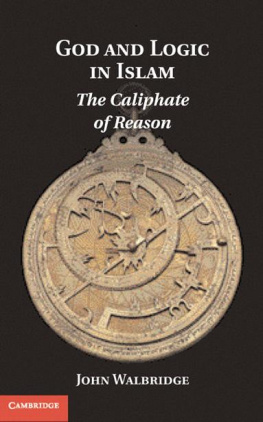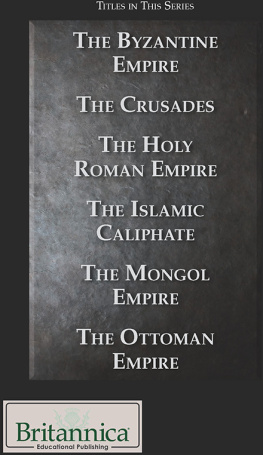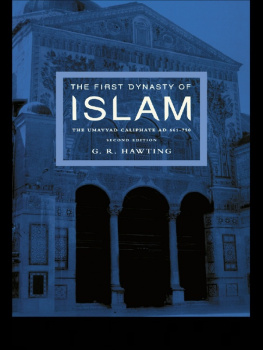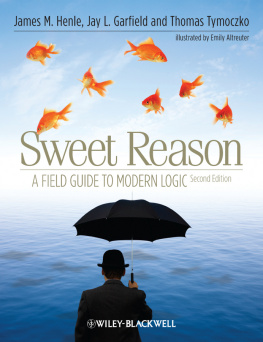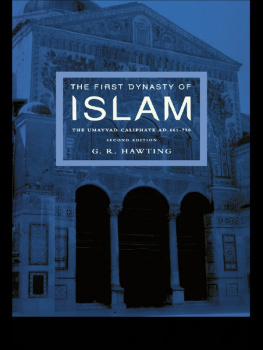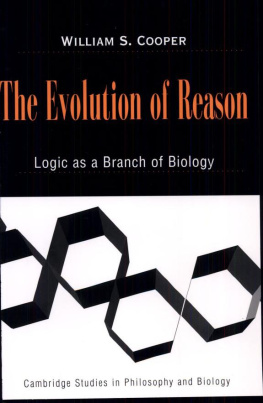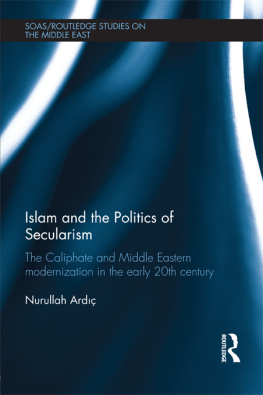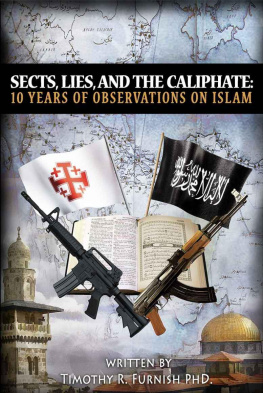John Walbridge - God and Logic in Islam: The Caliphate of Reason
Here you can read online John Walbridge - God and Logic in Islam: The Caliphate of Reason full text of the book (entire story) in english for free. Download pdf and epub, get meaning, cover and reviews about this ebook. year: 2010, publisher: Cambridge University Press, genre: Religion. Description of the work, (preface) as well as reviews are available. Best literature library LitArk.com created for fans of good reading and offers a wide selection of genres:
Romance novel
Science fiction
Adventure
Detective
Science
History
Home and family
Prose
Art
Politics
Computer
Non-fiction
Religion
Business
Children
Humor
Choose a favorite category and find really read worthwhile books. Enjoy immersion in the world of imagination, feel the emotions of the characters or learn something new for yourself, make an fascinating discovery.
- Book:God and Logic in Islam: The Caliphate of Reason
- Author:
- Publisher:Cambridge University Press
- Genre:
- Year:2010
- Rating:3 / 5
- Favourites:Add to favourites
- Your mark:
- 60
- 1
- 2
- 3
- 4
- 5
God and Logic in Islam: The Caliphate of Reason: summary, description and annotation
We offer to read an annotation, description, summary or preface (depends on what the author of the book "God and Logic in Islam: The Caliphate of Reason" wrote himself). If you haven't found the necessary information about the book — write in the comments, we will try to find it.
God and Logic in Islam: The Caliphate of Reason — read online for free the complete book (whole text) full work
Below is the text of the book, divided by pages. System saving the place of the last page read, allows you to conveniently read the book "God and Logic in Islam: The Caliphate of Reason" online for free, without having to search again every time where you left off. Put a bookmark, and you can go to the page where you finished reading at any time.
Font size:
Interval:
Bookmark:
This book investigates the central role of reason in Islamic intellectual life. Despite widespread characterization of Islam as a system of belief based only on revelation, John Walbridge argues that rational methods, not fundamentalism, have characterized Islamic law, philosophy, theology, and education since the medieval period. His research demonstrates that this medieval Islamic rational tradition was opposed by both modernists and fundamentalists, resulting in a general collapse of traditional Islamic intellectual life and its replacement by more modern but far shallower forms of thought. The resources of this Islamic scholarly current, however, remain an integral part of the Islamic intellectual tradition and will prove vital to its revival. The future of Islam, Walbridge argues, will be marked by a return to rationalism.
John Walbridge is Professor of Near Eastern Languages and Cultures at Indiana University. He is the author of nine books on Islam and Arabic culture, including four books on Islamic philosophy, two of which are The Wisdom of the Mystic East: Suhrawardi and Platonic Orientalism (2001) and Suhrawardi, the Philosophy of Illumination (with Hossein Ziai, 1999).

To Frances, with love, and to the memory of Elaine Wright.
The first thing God created was mind.
a hadith
I have written this book with three readers in mind: the educated Western reader whose knowledge of Islam may be no more than impressions formed from television and newspapers; the Muslim reader troubled by the misfortunes of his community in the modern world; and the scholar of Islamic studies. They have, unfortunately, quite different needs, and I hope that each will be tolerant of the needs of the others.
I have tried to write this book in a way that will be understandable to an educated Western reader without specialized knowledge of Islam. I have therefore avoided assuming much knowledge about Islam and in particular extensive use of Arabic words and names. I have usually defined technical Islamic terms and identified names when they first occur. I also give brief definitions and identifications in the index. However, there are inevitably places where I have to deal in technicalities, for which I ask the patience of the nonspecialist. For my Muslim readers, this is essentially a theological work, a plea to reexamine the riches of the Islamic rationalist tradition in light of the needs of the modern Islamic community. For my scholarly reader, this book is a reminder of what I hope he already knows the central importance of rationalism, and particularly scholastic rationalism, in the Islamic intellectual synthesis.
This book represents ideas that have developed over the course of my career, going back to my first undergraduate Islamic studies paper. It took this specific shape as a byproduct of work that I conducted first in Pakistan on the role of logic in Islamic education and later in Turkey on the relation of Islamic science and medicine to philosophy. These projects were generously funded by several organizations, including the Fulbright program, which allowed me to spend a year each in Pakistan and Turkey; the American Institute of Pakistan Studies; the American Research Institute in Turkey; the American Philosophical Society; the Guggenheim Foundation; and Indiana University. Some sections were first published in the journal Islamic Studies , and I gratefully acknowledge their permission to reprint material from these articles and even more their support of my work on the role of logic in Islamic education, particularly the encouragement of Dr. Zafar Ishaq Ansari. Considerable parts of the book were first presented as lectures at Punjab University in Lahore and the slm Aratrmalar Merkezi in skdar, Turkey. The latter also provided me with a fellowship that allowed me access to their excellent research library, as well as office space, research support, and not least sociable, intellectually stimulating, and delicious lunches. In particular, I would like to thank my chief hosts there, Drs. Nri Tnaz and Aydn Topololu. I would also like to thank the librarians at Punjab University, the Ganj-Bakhsh Library in Islamabad, the wonderful Sleymaniye Library in Istanbul, the SAM library, and the Indiana University Libraries.
Though I have discussed these ideas with various people over the years, I would like to particularly thank my friend, Emeritus Distinguished Professor of the History and Philosophy of Science Edward Grant, who somewhat inadvertently started me thinking about the relation of science and reason in Islamic civilization and whose books on the role of reason and science in medieval Europe have been a model for my decidedly more modest contribution.
As always, I owe thanks to my family for their support and forbearance my sons, John and Nathaniel, who put up with my scholarly research and long trips abroad, and my late wife, Linda Strickland Walbridge, who accompanied and supported me for most of my career. Finally, I owe special thanks to my wife, Frances Trix, who entered and brightened my life at the end of a very difficult period, interpreted for me in Turkish libraries, sat through the lectures that were the penultimate form of this work, and has encouraged me in all that I have done these last seven years.
Arabic terms are spelled with slight modifications according to the system commonly used by scholars of the Middle East. It will be familiar to specialists. In the occasional cases where I am citing names or terms from other Islamic languages, I treat them as Arabic for simplicity unless they have established equivalents in English. I also frequently omit the al- from Arabic names, again for simplicity.
In a work such as this, Arabic terminology and names are unavoidable, but I have tried to keep it accessible to a general reader, at least a patient one. Whenever possible, I use English equivalents rather than Arabic terms. Almost any translation of an Islamic religious term can be objected to as imprecise, but on the whole I think it is better to use a term that the reader starts out understanding, explaining how it differs from its usual sense, rather than start with a term the reader does not know and try to explain the meaning to him or her from scratch. I include brief definitions of terms and names in the index, which the reader can use as a glossary. I also explain terms and identify people at first mention. Dates are given only according to the Common Era except in the case of books whose publication dates are given according to the Islamic calendar.
Font size:
Interval:
Bookmark:
Similar books «God and Logic in Islam: The Caliphate of Reason»
Look at similar books to God and Logic in Islam: The Caliphate of Reason. We have selected literature similar in name and meaning in the hope of providing readers with more options to find new, interesting, not yet read works.
Discussion, reviews of the book God and Logic in Islam: The Caliphate of Reason and just readers' own opinions. Leave your comments, write what you think about the work, its meaning or the main characters. Specify what exactly you liked and what you didn't like, and why you think so.

